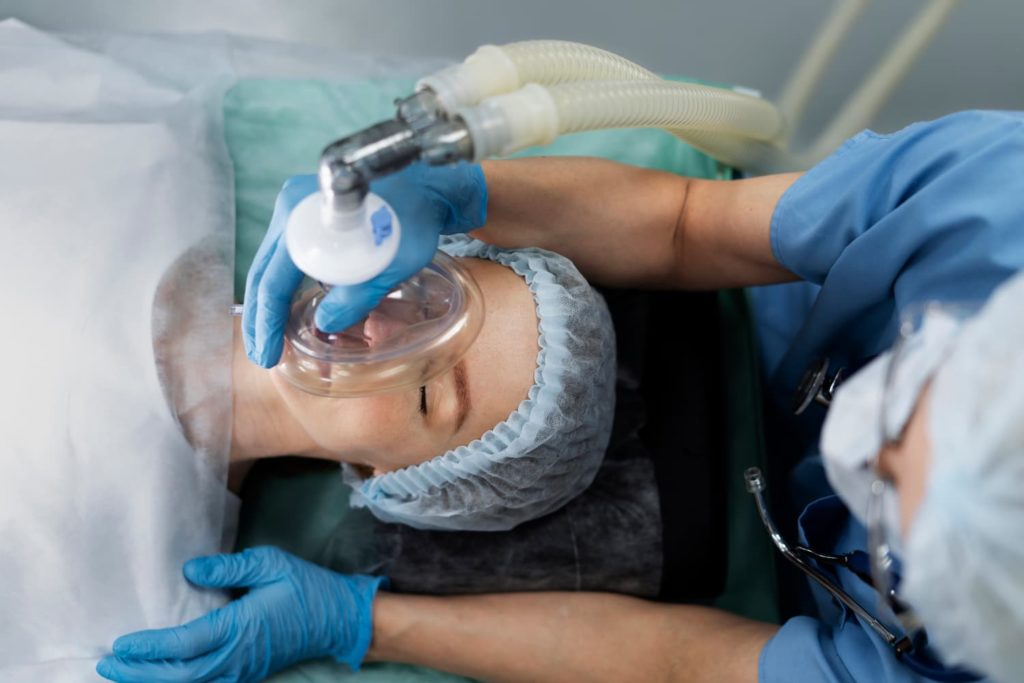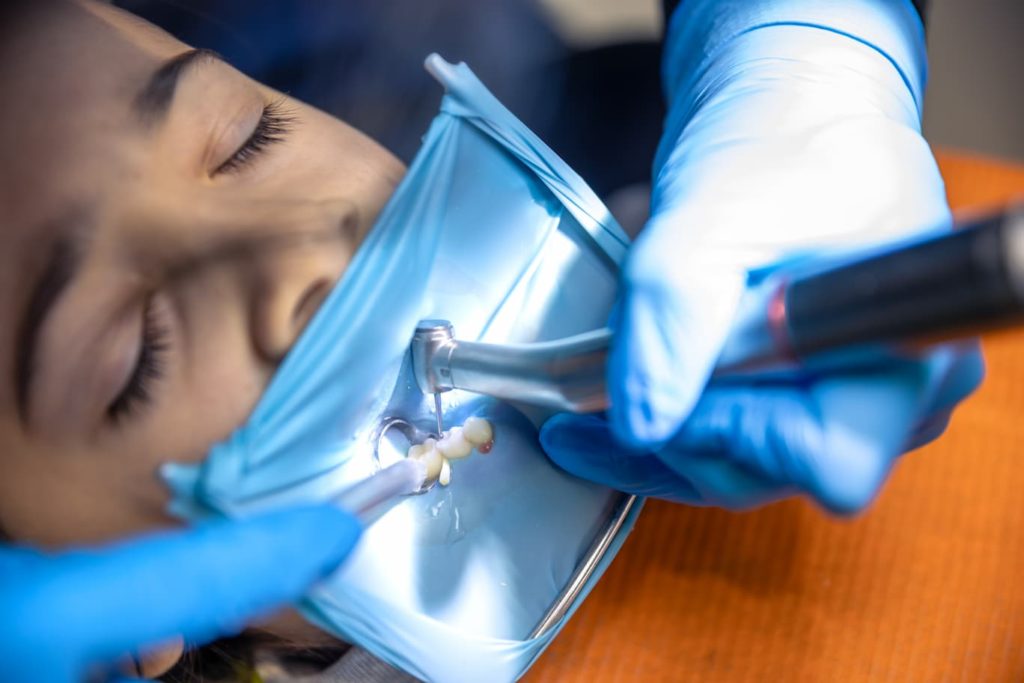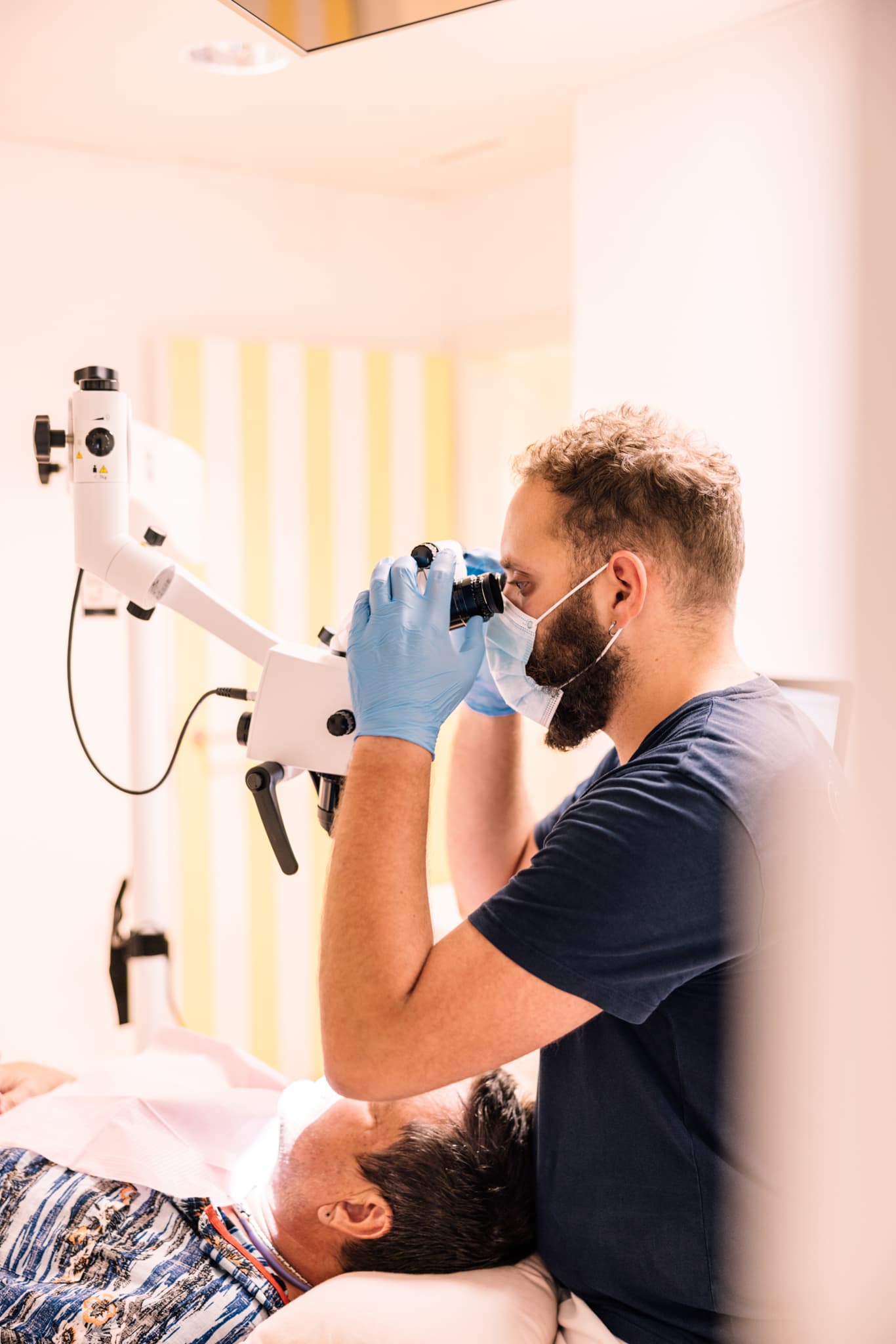General Anaesthesia
Control, peace of mind, safety
Many patients postpone dental surgery out of fear of pain. However, delaying a necessary procedure only worsens the situation, increases the risk of complications, and leads to higher future costs. Thankfully, there are now many ways to protect patients from pain—and general anaesthesia is one of them.
General anaesthesia at the CHD
At the CHD, we understand that fear of pain can be a significant barrier for some patients. That’s why our team of anaesthetists can offer general anaesthesia when needed.
Discover this treatment in video


Pricing
| Upon estimate |
You have the possibility to pay by invoices and stagger your payments.
Fair & transparent prices
We strive to maintain unbeatable value for money: reasonable prices, which have not changed since 2016, for quality of care that has earned us numerous awards:




Advice
General anaesthesia offers true comfort and allows your dentist to carry out the treatment without you feeling any pain. It is especially useful in cases where multiple specialists need to intervene at once: the dentist, surgeon, periodontist, etc.
This is possible because you are completely unconscious during the procedure. Today, general anaesthesia is becoming increasingly common in dental care. That said, it is not a trivial act, and you must follow your dentist’s advice carefully both before and after the procedure to ensure everything goes smoothly.
For instance, you must fast for at least 6 hours for food (and 3 hours for drinks) before your operation.
Also, plan ahead for your return home—it’s best to have someone accompany you or arrange for a taxi. For complex surgeries, CHD may cover part of your return taxi fare.
Rest for 24 hours after the procedure until the effects of the anaesthetic wear off completely.
And if you have any doubts, consult your dentist.
Our dental clinics
Learn more about general dental anaesthesia
Who can benefit from general anaesthesia at the dentist?
General anaesthesia is not a routine procedure in dental medicine and it’s usually better to guide the patient toward the least invasive option. However, it is especially suitable for certain profiles, such as patients with a strong dental phobia, those allergic to local anaesthetics, young children (from age 3), or individuals with disabilities.
Do you need to fast before general anaesthesia?
Unlike other dental anaesthesia (e.g., local anaesthesia or laughing gas), general anaesthesia requires fasting. Patients are advised not to eat for at least 6 hours before the procedure, and not to drink for at least 3 hours beforehand.
Timings may vary based on your specific case. Ask your dentist for personalised advice.
Which treatments require general rather than local anaesthesia?
Most dental procedures that can be done under local anaesthesia can also be performed under general anaesthesia—such as wisdom tooth extraction or gum grafting. However, general anaesthesia is more demanding: its effects last longer and it requires an anaesthetist. Therefore, unless in special cases (e.g., phobic patients, those with disabilities, or allergies to local anaesthetics), general anaesthesia is usually reserved for complex dental surgeries such as All-on-4, All-on-6, or All-on-8, where local anaesthesia may not be sufficient.
How long does general anaesthesia last?
It depends on the duration of the procedure and the amount of anaesthetic administered. For instance, in a wisdom tooth extraction, the anaesthesia may last longer if all four teeth are removed at once.
Once the anaesthetics are stopped, patients typically wake up within a few minutes, but it takes longer to fully regain awareness. Expect between 15 and 45 minutes to feel normal again. It’s usually recommended to rest, avoid driving, and not make any important decisions in the 24 hours that follow.
Can someone be allergic to general anaesthesia?
In very rare cases, patients may have an allergic reaction to general anaesthesia. Symptoms can include skin rashes, breathing difficulties, or low blood pressure. Our team of anaesthetists is always present to prevent and manage such reactions during the procedure.
If in doubt, speak to your dentist.
Are there any contraindications to general anaesthesia?
Complications linked to general anaesthesia are rare. However, your dentist may want to ensure you have no cardiovascular, kidney, liver or respiratory conditions that could present a contraindication.
What happens when you wake up after general anaesthesia?
Modern anaesthetic drugs have evolved significantly. Today, their effects wear off quickly and patients regain their bearings fairly soon after the operation (except in the case of long and complex procedures requiring high doses). Pain relief may also be administered to ensure a smooth and pain-free recovery.
